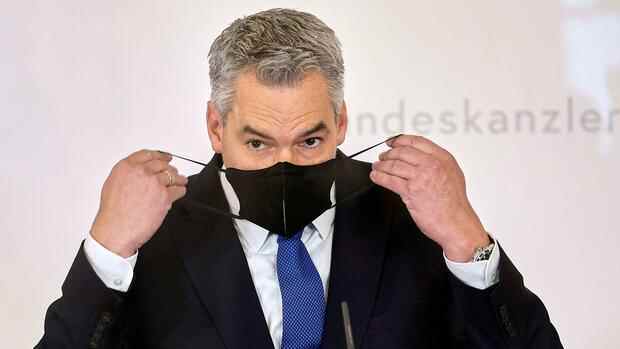However, the closer the vaccination requirement from February 1 approaches, the louder critics and skeptics speak out. Their basic tenor is: The measure is too complex and not necessary at the moment.
Actually, the planned compulsory vaccination is an act of desperation. In November, the number of reported corona infections had skyrocketed, and the intensive care units were reaching their limits. Doctors warned in sometimes drastic words of overloading. At the same time, the government struggled with the relatively low vaccination rate.
The opinion therefore prevailed in the government that the country could not stagger from lockdown to lockdown. The damage to the economy and society is too great.
Top jobs of the day
Find the best jobs now and
be notified by email.
Until the middle of this week, interest groups and citizens could express their opinion on the planned vaccination law. Around 180,000 such statements have come together, with opponents of vaccination also sending identical statements.
Criticism from business
However, criticism of the law also came from science and business. The epidemiologist Gerald Gartlehner from the Danube University Krems advocates a rethinking of compulsory vaccination. His main argument: The omicron wave will lead to a level of immunity in the population that has not been seen before in this pandemic. “Therefore, one probably has to reassess the obligation to vaccinate after the omicron wave,” he said.
The Chamber of Commerce (WKÖ), the organization of employers, suggested at least postponing the entry into force of the law. She wants “further incentives and more lenient means” to increase the vaccination rate to be used first. This is currently 71.4 percent.
This proposal from the economy is not entirely selfless. In Austria, there is always a discussion about baiting non-vaccinators with a premium. This would be in the form of a voucher that could be redeemed in shops and restaurants. For the economy, such a vaccination incentive would also be a kind of economic aid.
Despite all the criticism and objections, the government wants to introduce compulsory vaccination on February 1st. Anything else would be a loss of face for them. “Vaccination will be mandatory, all experts agree on the high protective effect against omicron and hospitalizations,” said Federal Chancellor Karl Nehammer.
However, there are still countless details to be clarified. The courts are startled. They fear an avalanche of penal orders that have to be processed. The government also sees the judges facing a huge effort. She forecasts 1.8 million penal orders, 1.4 million administrative penal proceedings and hundreds of thousands of appeals.
A little over 300 judges work at the state administrative courts. “In the short term, the same number of judges would have to be added in order to effectively carry out the vaccination requirement,” said Markus Thoma, spokesman for the umbrella organization of administrative judges, on Austrian radio ORF. The federal states also expect an immense effort. Tyrol, for example, accuses the federal government of severely underestimating this.
Government has not yet responded to criticism
The government has not yet responded to this criticism in detail. Sigrid Maurer, parliamentary group leader of the ruling party of the Greens, said only that the authorities would get the resources they needed.
The question of how compulsory vaccination should be controlled is also open. The database, in which the vaccination status of the population and any exceptions to the vaccination requirement are recorded, should not be ready until April. Until then, the police will probably check the vaccination requirement by means of spot checks, just as they check whether someone is driving a drunk car.
Chancellor Nehammer adheres to compulsory corona vaccination
In professional life, the 3G rule will probably continue to apply. Anyone who is not vaccinated can continue to work in the office or in the factory, but must be tested regularly.
There is a fundamental right to gainful employment, but this is not easily compatible with the obligation to vaccinate. Unvaccinated people can no longer invoke the 3G rule if they are stopped by the police on their way to the office. In this case, they too must be prepared for a sanction. The penalty is currently 600 euros. Once the vaccination registry is up and running as planned, the sanction is expected to be issued on a quarterly basis.
More: Debate about general vaccination – what proposals are circulating
